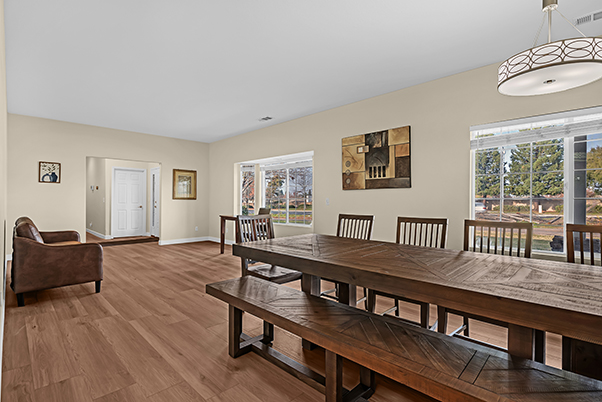Regain control. Heal deeply. Build lasting recovery.
Opioid Addiction Treatment in Sacramento & Northern California
When opioid use becomes dependence—whether from prescription painkillers, heroin, fentanyl, or illicit opioids—professional, evidence-based treatment is critical. CRC offers that support across Northern California.

Why Opioid Addiction Treatment Matters
The opioid crisis is a severe and growing challenge in California. In 2021, there were 7,175 opioid-related overdose deaths in the state, an age-adjusted rate of 18.0 per 100,000 residents.
In Sacramento County, the age-adjusted death rate for drug + opioid-involved overdose was about 22.1 per 100,000 in recent years — higher than state averages.
The potent synthetic opioid Fentanyl is a major contributor to this crisis, often hidden in counterfeit prescription pills and other substances.
Your content goes here. Edit or remove this text inline or in the module Content settings. You can also style every aspect of this content in the module Design settings and even apply custom CSS to this text in the module Advanced settings.
Our Approach to Opioid Addiction Treatment
Assessment & Stabilization
First, we conduct a comprehensive evaluation of substance use history, co-occurring mental health or behavioral health issues, physical health, and social/family factors. For clients needing safe detox from opioids, CRC provides medically supervised detox protocols.
Continuum of Care
- Residential/Inpatient Treatment: Intensive 24/7 care for those whose use or withdrawal requires higher supervision and a supportive, structured environment.
- Outpatient Programs: Flexible treatment allowing clients to live at home or with family, attend therapy and recovery support, and maintain work or school responsibilities.
- Telehealth Access: For Northern California residents (including remote or rural locations) we offer secure, confidential virtual therapy and recovery sessions.
Therapeutic Modalities
We utilize evidence-based, whole-person care:
- Trauma-Informed Care – Healing underlying trauma that often fuels opioid use.
- Cognitive Behavioral Therapy (CBT) – Identifying and reshaping the patterns of thought and behavior driving opioid dependence.
- Dialectical Behavior Therapy (DBT) – Building emotional regulation, distress tolerance, and interpersonal effectiveness to support sustained recovery.
- Community Support Groups – Meaningful peer connection, accountability, and long-term recovery community.
Holistic & Aftercare Supports
Recovery from opioid addiction is more than just stopping use—it’s rebuilding life. At CRC we support clients in: nutrition, fitness, mindfulness, wellness strategies, family involvement, and establishing strong alumni networks for ongoing support.
Local & Accessible
Why Choose California Recovery Center?
CRC offers comprehensive, evidence-based care for opioid addiction, combining medically supervised detox, personalized therapy, and ongoing support. Our programs—residential, outpatient, and telehealth—are designed to address both substance use and underlying mental health needs, helping clients safely navigate recovery and build lasting resilience.

Full Spectrum of Care
From detox and inpatient stays to outpatient transitions, telehealth and aftercare—we support every phase of recovery.

Evidence-Driven & Compassionate
Our modalities are research-based and customized for opioid addiction in mind.

Recovery Beyond Treatment
We emphasize long-term wellness—mental health, family care, self-care, and community connection.
Frequently Asked Questions
Struggling with opioid addiction raises many questions about safety, treatment, and recovery. Below are answers to some of the most common concerns from clients and families seeking help at CRC.
What are the signs of opioid addiction?
Common signs include increased tolerance, withdrawal symptoms when not using, cravings, neglecting responsibilities, and continued use despite negative consequences.
Is medically supervised detox necessary?
Yes. Detox under medical supervision helps manage withdrawal safely and reduces the risk of complications.
Can I receive outpatient treatment?
Yes. Outpatient programs provide therapy and support while allowing clients to maintain work, school, and family responsibilities.
How long does opioid treatment last?
Treatment length varies depending on severity, co-occurring conditions, and the level of care. It can range from a few weeks in intensive inpatient care to several months with outpatient or telehealth support.
Does CRC treat co-occurring mental health conditions?
Absolutely. Anxiety, depression, trauma, and other behavioral health challenges are treated alongside opioid addiction.
Can family members participate in treatment?
Yes. Family counseling and education are integral to supporting recovery and maintaining long-term outcomes.
What is opioid use disorder (OUD)?
OUD is a medical condition marked by uncontrolled craving for opioids, continued use despite harmful consequences, and changes in brain reward and stress systems.
Do I need detox to start?
Many people with heavy or long-term opioid use benefit from medically supervised detox. Our clinical team assesses your situation and recommends the appropriate level of care.
Opioid Use in Northern California: Key Facts
- California’s drug overdose death rate was 26.9 per 100,000 in 2022.
- Sacramento County average age-adjusted death rate due to drug + opioid involved overdose was ~22.1 per 100,000.
- Fentanyl-laced counterfeit pills are increasingly common in Sacramento County, often indistinguishable from legitimate prescriptions.

